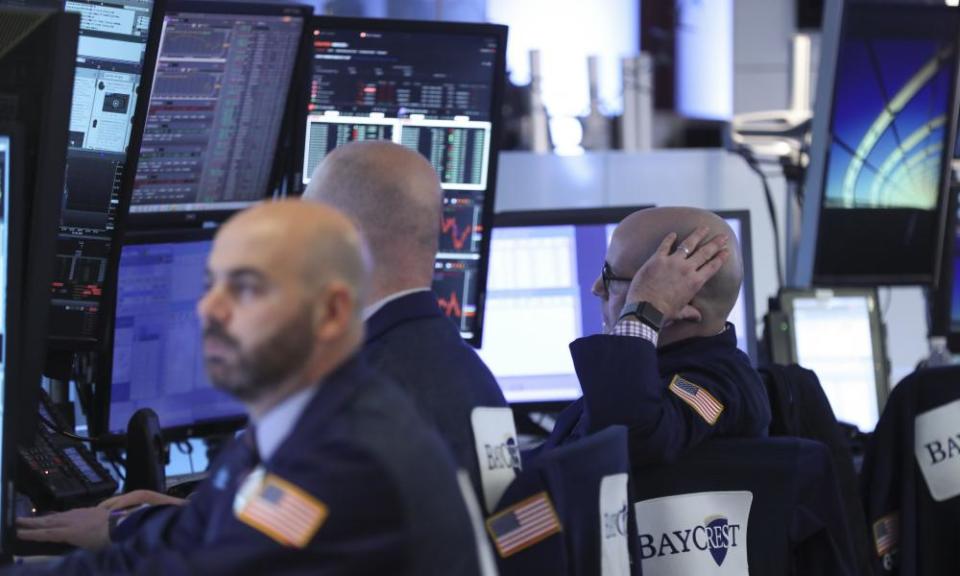Donald Trump says stock market is making a 'big mistake' after drop
President reminisces about the good ‘old days’ after Dow Jones industrial average lost 1,175 points on Monday

The stock market is making a “big mistake”, Donald Trump said on Thursday, days after a record-breaking sell-off on the US exchanges.
“In the ‘old days,’ when good news was reported, the Stock Market would go up. Today, when good news is reported, the Stock Market goes down. Big mistake, and we have so much good (great) news about the economy!” Trump wrote on Twitter in his first public comment on the sell-off.
Why are stock markets falling?
For several weeks, economists and analysts have warned that inflation levels in major economies could increase this year beyond the 2% to 3% that central banks believe is good for developed countries. Official US figures turned those concerns into a sell-off last Friday, after they showed average wage rises in the US had reached 2.9%. The data increased fears that shop prices would soon rise further, increasing the pressure for high interest rates to calm the economy down. Investors then bolted at the prospect of an era of cheap money – which encourages consumers and companies to spend – coming to an end. Over the past month, several members of the US central bank, the Federal Reserve, have argued that three 0.25% interest rate rises scheduled for this year could become four or five.
Is there worse to come?
There is every prospect that the US economic data will continue to strengthen, increasing the potential for higher interest rates. President Donald Trump’s tax reform bill, which gained approval in Congress before Christmas, will inject more than $1tn (£710bn) into the US economy, much of it in the form of corporation tax cuts. Many firms have pledged to give a slice of the cash to their workers. Decades of flat wages should mean that increases expected in 2018 and possibly 2019 are too small to trigger a reaction from the central bank, but investors are betting rates will rise. As a consequence, stock market jitters could continue.
Is it a threat to the global economy?
Many developing world economies have borrowed heavily in dollars and will be stung by the higher cost of servicing their debts. On the other hand, a booming US economy will suck in imports from those nations, boosting the incomes of the developing world. However, the eurozone looks unlikely to increase interest rates until its recovery is more firmly anchored. That means the euro will continue to rise in value against the dollar, making it harder for European countries to export to the US.
The Dow Jones industrial average lost 1,175 points on Monday following another sharp fall last Friday. The drop appears to have been triggered by news of stronger than expected growth in wages, which fueled expectations of a higher rise in interest rates from the Federal Reserve.
Commenting on the markets on Tuesday, White House press secretary Sarah Huckabee Sanders said the US economy was “incredibly strong” and “nothing that’s taken place over the last couple of days in our economy that’s fundamentally different than it was two weeks ago”.
Since his election, US – and global – stock markets have hit record highs. Trump has consistently pointed to rising stock markets as proof his economic policies are working.
Dow, S&P 500 and Nasdaq all finished the day at new RECORD HIGHS! pic.twitter.com/wJyB9d00hh
— Donald J. Trump (@realDonaldTrump) November 28, 2017
While his corporate tax cuts and push for deregulation have pushed share prices higher, US markets have been on a record-breaking streak for nine years and have risen in large part thanks to economic strength around the world and unprecedentedly low interest rates. That period of low rates now appears to be coming to an end as central banks worry about inflation. Those fears are leading to greater volatility in the stock market.
